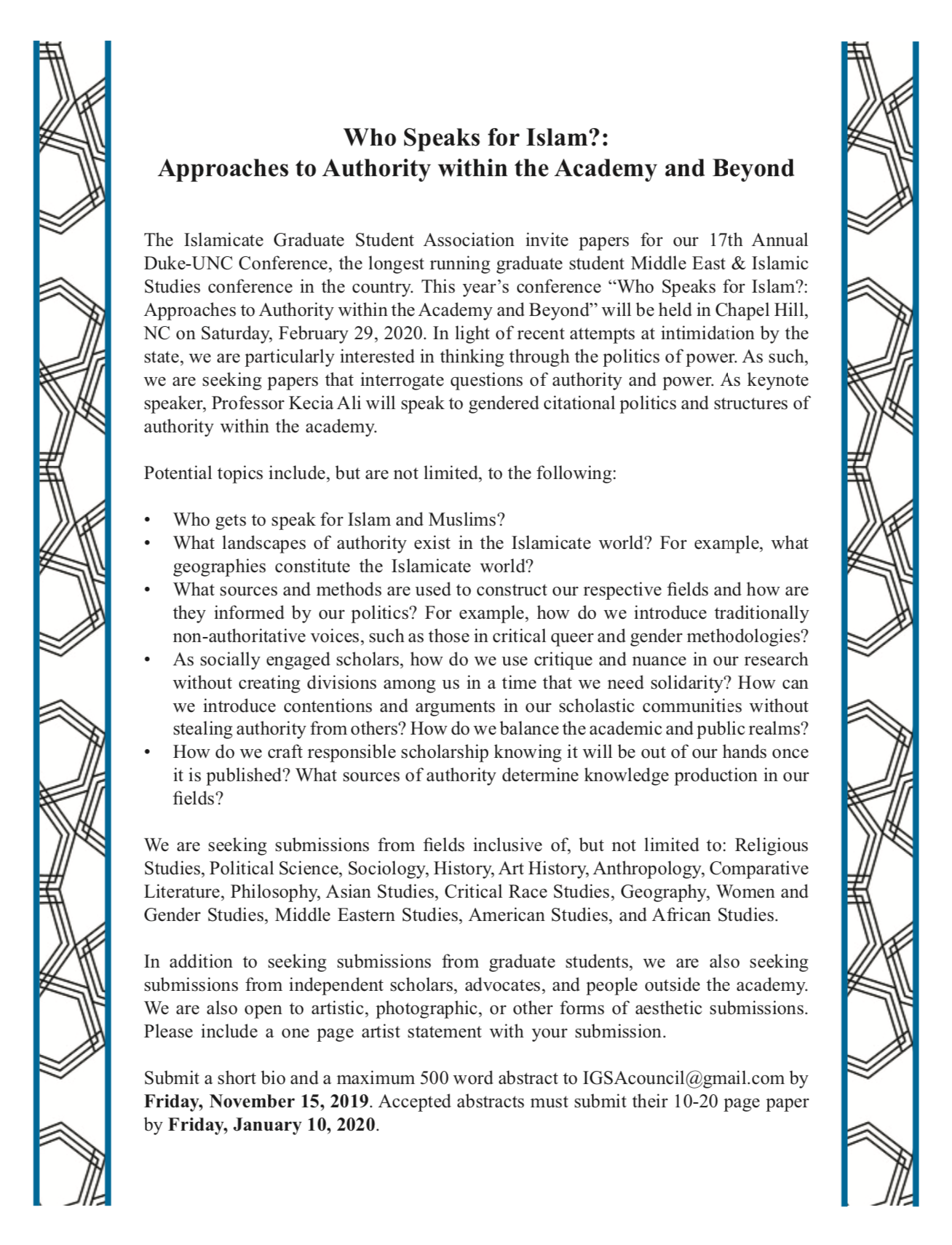The Islamicate Graduate Student Association invite papers for our 17th Annual Duke-UNC Conference, the longest running graduate student Middle East & Islamic Studies conference in the country. This year’s conference “Who Speaks for Islam?: Approaches to Authority within the Academy and Beyond” will be held in Chapel Hill, North Carolina on Saturday, 29 February 2020. In light of recent attempts at intimidation by the state, we are particularly interested in thinking through the politics of power. As such, we are seeking papers that interrogate questions of authority and power. As keynote speaker, Professor Kecia Ali will speak to gendered citational politics and structures of authority within the academy.
Potential topics include, but are not limited, to the following:
- Who gets to speak for Islam and Muslims?
- What landscapes of authority exist in the Islamicate world? For example, what geographies constitute the Islamicate world?
- What sources and methods are used to construct our respective fields and how are they informed by our politics? For example, how do we introduce traditionally non-authoritative voices, such as those in critical queer and gender methodologies?
- As socially engaged scholars, how do we use critique and nuance in our research without creating divisions among us in a time that we need solidarity? How can we introduce contentions and arguments in our scholastic communities without stealing authority from others? How do we balance the academic and public realms?
- How do we craft responsible scholarship knowing it will be out of our hands once it is published? What sources of authority determine knowledge production in our fields?
We are seeking submissions from fields inclusive of, but not limited to: Religious Studies, Political Science, Sociology, History, Art History, Anthropology, Comparative Literature, Philosophy, Asian Studies, Critical Race Studies, Geography, Women and Gender Studies, Middle Eastern Studies, American Studies, and African Studies.
In addition to seeking submissions from graduate students, we are also seeking submissions from independent scholars, advocates, and people outside the academy. We are also open to artistic, photographic, or other forms of aesthetic submissions. Please include a one page artist statement with your submission.
Submit a short bio and a maximum 500 word abstract to IGSAcouncil@gmail.com by Friday, 15 November 2019. Accepted abstracts must submit their 10-20 page paper by Friday, 10 January 2020.
